Plenary Speakers
AAAL 2022
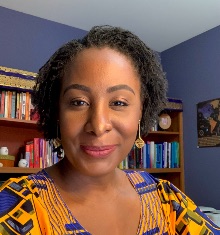 |
Critical race pedagogy for more effective and inclusive world language teachingDr. Uju Anya, Carnegie Mellon University
Saturday, March 19, 8:00 - 9:20 am
This talk addresses systemic inequity and the underrepresentation of African Americans in applied linguistics, second language acquisition (SLA), and world language (WL) education. The presentation argues that our field must reckon with racism and anti-Blackness in language learning curriculum, materials, and instructional practices, and it shows how analyses based on critical race theory (CRT) and critical race pedagogy (CRP) can elucidate such injustices and offer solutions for them. In the talk, findings from an ethnographic needs analysis study of Spanish language curriculum and instructional practices at two minority serving postsecondary institutions (MSIs) are compared with findings from a participatory action research collaboration with Spanish language instructors examining curriculum at a predominantly white institution (PWI) to show how WL curriculum and instruction exhibit the anti-Blackness seen in broader society. The findings are analyzed through three main principles of CRT—racial realism, a critique of liberal myths like race neutrality, and prioritizing experiential knowledge from counternarratives—to reveal how world language programs often do not provide what is necessary for Black students to have a meaningful learning experience. Ultimately, this talk discusses how African Americans can successfully participate in WL learning, and a critical race pedagogy to promote more effective WL teaching (CRPWLT) and meaningful inclusion, retention, and success of Black students in WL programs is presented.
Dr. Uju Anya (she/her) is an Associate Professor of second language acquisition at the Department of Modern Languages at Carnegie Mellon University. Previously, she was an Assistant Professor of curriculum and instruction and a Research Associate at the Center for the Study of Higher Education at Penn State University. Her main topic of research in applied linguistics is how race, gender, sexual, and social class identities are shaped and negotiated in new language learning. Specifically, she examines the experiences and outcomes of African Americans learning world languages with articles published in journals such as The Annual Review of Applied Linguistics, Foreign Language Annals, and Issues in Applied Linguistics. Her monograph Racialized Identities in Second Language Learning: Speaking Blackness in Brazil (Routledge, 2017) is the winner of the 2019 AAAL First Book Award, which recognizes a scholar whose first book represents outstanding work that makes an exceptional contribution to the field. The article Dr. Anya’s AAAL 2022 keynote presentation is based on is part of a “social justice” special issue of Applied Linguistics where she introduces to the field a critical race pedagogy for world language teaching (CRPWLT). Her other areas of inquiry include intercultural communication, service-learning in language instruction, and translanguaging in world language pedagogy. |
|
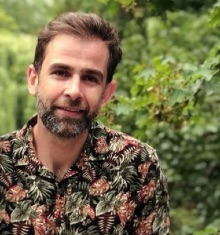 |
Animating other wor(l)ds: Transformations of language and social justice (Notes on "allied linguistics")Dr. Rodrigo Borba, Federal University of Rio de Janeiro, Brazil
Saturday March 19, 5:30 – 6:30 pm
In several parts of the world, residues of colonialism and jarring waves of authoritarian populisms in traditionally democratic societies make the idea of social justice seems a contradiction in terms. Contemporary Brazil is an intensely relevant and painfully interesting case in point.
Dr. Rodrigo Borba (they/he) is an activist-turned-applied-linguist whose research aims to promote LGBTQIA+-affirming healthcare, literacy, and online communication. They became interested in the role of language/discourse in making or breaking social realities due to their long-term involvement with queer social movements. Their research on doctor-patient interactions at Brazilian trans-specific healthcare clinics won the Best Dissertation Award of the Ministry of Education in 2015 and was later published as a book titled O (des)aprendizado de si: transexualidades, interação e cuidado em saúde (Fiocruz, 2016). They work as an Associate Professor at the Federal University of Rio de Janeiro where they are also the Director of the Interdisciplinary Graduate Programme in Applied Linguistics. Dr. Borba was a visiting researcher at the Centre for Language, Discourse, and Communication at King`s College London, the Department of English Language and Applied Linguistics at the University of Birmingham, and the Faculty of Linguistics, Philology, and Phonetics at Oxford University. Their work has appeared in numerous leading journals such as Journal of Sociolinguistics, International Journal for the Sociology of Language, Revista Brasileira de Linguística Aplicada, Gender and Language, Cadernos Pagu among others. They have edited several books such as Queering Paradigms IV: South-North Dialogues on Queer Epistemologies, Embodiments and Activisms (Peter Lang, 2014) and Discursos Transviados: Por uma Linguística Queer (Cortez, 2020). Their research interests include queer linguistics, linguistic landscapes, health communication, and discourse analysis with an activist-research focus on the relations between discourse, gender, and sexuality. Currently, they are the secretary of the Brazilian Association for Research on Trans-homoculture (ABETH). With Kira Hall and Mie Hiramoto, Dr. Borba is co-editor of the journal Gender & Language. |
|
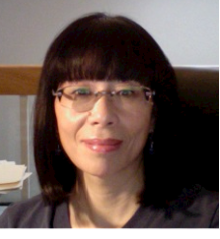 |
Explaining second language reading development: Linguistic constraints on crosslinguistic interactionsDr. Keiko Koda, Carnegie Mellon University
Sunday March 20, 11:20 am - 12:30 pm
In a second language (L2), reading competence builds on previously acquired (L1) reading ability and emerging knowledge of the target language. This talk describes how their interplay alters reading development in different languages and diverse learner groups. As a process of meaning construction, reading entails four major operations, including word form analysis, word meaning retrieval, word meaning integration, and text coherence building. Comprehension occurs when graphically encoded linguistic information in a text is connected with the reader’s real-life experiences. In L2 reading, the reader-text interactions transpire across languages at all levels of text processing. The learner needs to construct text meanings in the target language and link them to prior knowledge accumulated mainly in the first language. Such crosslinguistic interplay provides us an opportunity to explore the reciprocity between linguistic knowledge and reading ability in L2 reading development. In this talk, I will provide a brief overview of our research program that examines systematic variations stemming from the involvement of two languages in L2 reading. I will describe how reading subskills are shared across languages, how the shareability varies across subskill, and how L2 linguistic knowledge constrains the contributions of shared subskills to L2 text comprehension.
Dr. Keiko Koda (she/her) is a Professor and Director of the doctoral program in second language acquisition and Japanese in the Department of Modern Languages at Carnegie Mellon University. Her research interests include second language reading, biliteracy development, psycholinguistics, and foreign language pedagogy. Her work has been published in a wide range of journals. She has authored, edited, and co-edited nine books, edited and co-edited special issues of journals, and contributed chapters to books on reading and second language acquisition. She has served the editorial boards of many highly regarded journals, including Reading Research Quarterly, Reading and Writing, Research in Second Language Learning, TESOL Quarterly, and Modern Language Journal. She has also served as a member of many national and international panels on reading and literacy development in additional languages. She has delivered talks and lectures as an invited speaker at universities and conferences in East Asia, South East Asia, Europe, and South America. Her recent projects have focused on the development of higher-order reading subskills in adult foreign language learners, the contributions of metalinguistic awareness to biliteracy development, and integrative approaches to foreign language reading instruction and assessment. |
|
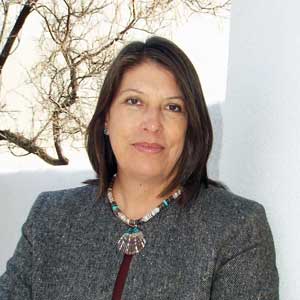 |
Pedagogies of k’é (kinship) and activism for ensuring Indigenous futures and wellbeingDr. Tiffany S. Lee, University of New Mexico
Sunday March 20, 5:30 – 6:30 pm
This presentation will share the research and experiences from my research work with Indigenous language immersion schools across the nation, teacher training in Diné language immersion methods, and community-based work to open a Diné language nest in Albuquerque, New Mexico. While all three projects involve a holistic approach to language reclamation by encompassing research, teaching, and service, this work that I have engaged in with a team of colleagues and relatives has embraced pedagogies of k’é (a Diné term for our cultural value for kinship, family, and relationships) and activism. It emanates from our collective personal passions for language revitalization and cultural continuity. Language revitalization is connected to our wellbeing as Indigenous peoples and plays a significant role in ensuring our futures. In this sense, these projects are ones of self-determination, Indigenous innovation, and k'é (kinship and relationships).
Dr. Tiffany S. Lee (she/her/asdzáán) is Dibé Łizhiní (Blacksheep) Diné from Crystal, New Mexico and Oglala Lakota from Pine Ridge, South Dakota. Dr. Lee is a Professor and the Chair of Native American Studies at the University of New Mexico in Albuquerque. Her research examines educational and culturally-based outcomes of Indigenous language immersion schools, Native youth perspectives on language reclamation, and socio-culturally centered education. Her work has been published in journals, such as the American Journal of Education, Harvard Educational Review, the Journals of Language, Identity, and Education and American Indian Education; and in books, such as Culturally Sustaining Pedagogies: Teaching and Learning for Justice in a Changing World (Paris & Alim, Eds. 2017), Diné Perspectives: Revitalizing and reclaiming Navajo thought (Lee, Ed. 2014), and Indigenous language revitalization in the Americas (Coronel-Molina & McCarty, Eds. 2019). She is the former President of the Diné Studies Conference, Inc. and a former high school social studies and language arts teacher at schools on the Navajo Nation and at Santa Fe Indian School. She is also a former member of the New Mexico Indian Education Advisory Council for the Office of Indian Education, New Mexico Public Education Department. |
|
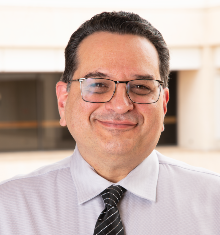 |
Pandemia, public health, and applied linguistics: Reflections on language and Latino health in and beyond los tiempos del COVIDDr. Glenn Martinez, The University of Texas at San Antonio
Monday March 21, 11:20 am - 12:30 pm
The global COVID-19 pandemic and its singular impact in the United States unmasked and exacerbated longstanding health and economic disparities affecting Spanish-speaking Latinx populations. Throughout the pandemic, Spanish speakers found themselves in the crosshairs of disproportional risk, infection, hospitalization, and mortality. By early 2021, COVID-19 case counts among Latinx populations were 1.7 times higher than case counts in non-Latinx populations, hospitalizations were 4.1 times higher and mortality rates were 2.8 times higher. Even while Spanish-speaking Latinx populations experienced disproportional impact from COVID-19 infection, hospitalization, and death, they faced a delay of critical public health information and a disqualification from economic assistance programs. COVID-19 did not create new disparities but rather it crystallized, with blinding clarity, the financial, social and health disparities that have affected Latinx populations all along. In this presentation, I will provide a high-level overview of the field of Latino health and discuss its recent articulations at the intersection of history, identity, and language. Based on previous and ongoing work, I will describe the roles that applied linguists have played in Latino health and health disparities research from both a descriptive and a critical perspective. I will conclude by offering some reflections on the directions of language related Latino health research on the other side of the pandemic.
Dr. Glenn Martinez (he/him/ él) is the Dean of the College of Liberal and Fine Arts and a Professor of Spanish, Bicultural/Bilingual Studies, and Public Health at The University of Texas at San Antonio. His research has focused on the intersection of language, latinidades and public health. His research, programmatic and community engagement work has been funded by the US Department of Education, the National Institutes of Health, and the Patient-Centered Outcomes Research Institute. He is the author of Spanish in Health Care: Policy, Practice and Pedagogy in Latino Health(Routledge, 2020), co-author of Tension and Contention in Language Education for Latinx in the United States (Routledge, 2020, with Robert Train), and co-author of numerous articles in journals such as Language Policy, Patient Education and Counseling, Journal of Nursing Education, Journal of Health Care for the Poor and Underserved, and Academic Medicine. |
|
 |
Current advances in instructed SLA: Issues and challengesDr. Hossein Nassaji, University of Victoria, Canada
Monday March 21, 5:30 – 6:30 pm
Considerable theory and research in second language acquisition (SLA) has focused on the role of instruction and focus on form in second language classrooms. Although most findings have confirmed the beneficial effects of instruction that draws attention to linguistic forms, questions have still remained as to how instruction assists acquisition and how best to understand and assess its contribution. In this talk, I will provide an overview of the major issues that researchers have been investigating in this area and how these issues have evolved over time. I will show that despite major theoretical and empirical advances, a satisfactory answer to many of the questions has yet to be achieved. I will argue that researchers need to broaden both their theoretical and methodological perspectives in order to be able to address the full range of questions in this domain. How this can be accomplished will be discussed. I will conclude with what we have learned so far and what continues to challenge our understanding of the role of instruction in SLA.
Dr. Hossein Nassaji (he/him) is a Professor of Applied Linguistics at the University of Victoria, Canada. He has authored numerous articles and book chapters in the areas of second language acquisition, corrective feedback, form-focused instruction, grammar instruction, and task-based teaching. His recent books include The Cambridge Handbook of Corrective Feedback in Second Language Learning and Teaching (Cambridge University Press, 2021, with Eva Kartchava), Corrective Feedback in Second Language Teaching and Learning (Routledge, 2017, with Eva Kartchava), and Interactional Feedback Dimension in Instructed Second Language Learning (Bloomsbury Publishing, 2015). He is a Fellow of the Royal Society of Canada (FRSC) and currently the co-editor of Language Teaching Research (SAGE). |
